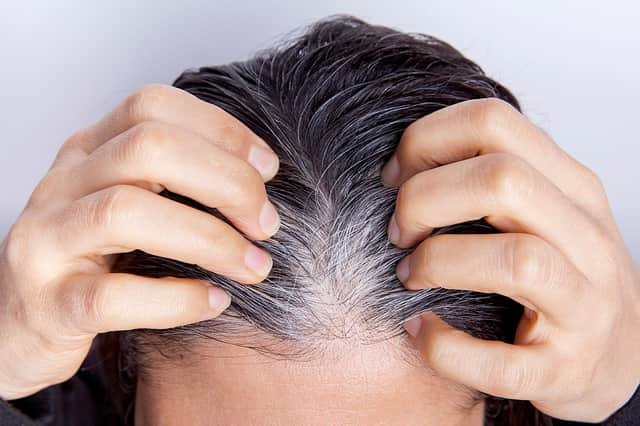Dr's Casebook: Stress really can make hair go grey


Dr Keith Souter writes: One thing that stood out for me about the movie was the image of Marie Antoinette on her way to the guillotine.
Catherine Walker who played her is shown with a mass of snow-white hair. History tells us that when she was captured during the French Revolution her hair turned white overnight through fear.
Advertisement
Hide AdAdvertisement
Hide AdMany people believe that they have discovered premature white hairs when they have been under stress.
Well, hair can’t suddenly turn white, because hairs are actually dead tissue.
For hair strands to grow grey or white they have to grow out from the root or the follicle.
Yet science has now shown that stress can indeed cause the change to be rapid.
Advertisement
Hide AdAdvertisement
Hide AdHair colour is determined by cells called melanocytes, which produce the pigment melanin.
New melanocytes are made from stem cells that live within the hair follicle at the base of the hair strand.
As you get older the number of stem cells reduces naturally.
The result is that the hair that regrows from hair follicles that have lost their melanocyte stem cells have less pigment and appears grey.
Advertisement
Hide AdAdvertisement
Hide AdResearch on mice has examined the effect of stress and hair greying.
The mice were exposed to three types of stress involving mild, short-term pain, psychological stress, and restricted movement.
They found that all three types of stress produced loss of melanocyte stem cells and hair greying, but the greater the stress the more the greying.
In testing this further the researchers found that if they injected the stress hormone noradrenaline under the skin of unstressed mice, it caused stem cell loss and hair greying.
Advertisement
Hide AdAdvertisement
Hide AdBy using a sophisticated fluorescent labelling technique, they were able to show that the stem cells in the hair follicles are activated by the noradrenaline which are then stimulated to change into melanocytes which migrate away from the hair follicle.
Effectively stress causes a depletion of the reserve of hair follicle stem cells and thence of melanin.
Thus, no further pigment can be made, and the hair will grow grey and ultimately goes white.
The movie may be right.